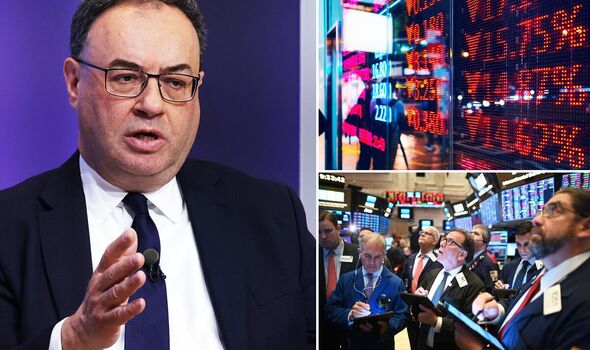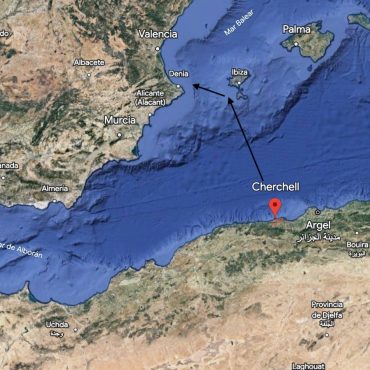-
 play_arrow
play_arrow
BayRadio Listen Live Broadcasting in Spain
Bank of England Sounds Alarm on Recession and Global Financial Instability


According to an expert, stubbornly high inflation suggests the Bank of England may have to hike its interest rate again in the near future, possibly risking a global financial crash.
As the Bank of England is warned that another interest rate hike will tip the UK into a recession, experts have lined up to advise against raising the current rate of 4.25 percent over fears it will have a further chilling effect on business investment and push already struggling households over the edge.
Central banks around the world have been fighting rising inflation for more than a year now by slowly increasing their benchmark policy rates. This has been particularly challenging due to the impact of China’s zero-Covid policy on supply chains and Russia’s war on Ukraine, which sent inflation soaring with energy prices rocketing and the flow of goods slowing.
The Bank of England (BoE) is due to announce any further change to its Bank Rate on May 11. The US Federal Reserve is to make its own rates decision on May 2, with the European Central Bank confirming its rate two days later.
Dr. George Hulene, Finance Associate Professor at Coventry University’s Faculty of Business and Law, expressed concern that hiking Britain’s interest rate could slow down business investment even further, which could lead to a recession. He added that data clearly shows the country sits on a very narrow fence between a recession and very small economic growth.
Although Britain has sidestepped a recession so far, its economy has stagnated over the last year. Professor Emilios Avgouleas, International Banking Law and Finance Chair at the University of Edinburgh, expressed that if central banks increase interest rates, a global recession is on the cards. He warned that the outlook for Western economies is bleak, and if interest rates continue to rise, a recession is just around the corner. If Western consumers are not spending, exporting countries will have nowhere to sell their products, leading to a global recession.
These concerns come after the International Monetary Fund (IMF) warned that the global economy is facing a “perilous” period in its most recent forecast. When asked if there could be a global recession if rates go any higher, Dr. Hulene said he is not too convinced it will be global like the 2008 one. Still, some countries, such as the US, Spain, Germany, and some in Asia, seem to have dealt with inflation quite well and are now on quite a strong recovery journey.
Dr. Nikolaos Papanikolaou, Senior Lecturer in Finance at Newcastle University Business School, warned that higher rates have led to significant losses in banks’ securities portfolios, triggering recent banking turmoil and posing a threat to financial stability. While the probabilities of an economic recession are now higher, the depth of a likely recession is expected to be modest, he said.
Dr. Hulene advised the Bank of England’s rate-setters not to change the UK’s interest rate, saying that, in his view, they should keep them as they are. He added that the inflation levels we see at the moment are quite clearly not happening because people and businesses spend erratically, so there is no genuine need for the bank to extract cash from society.
He added that given the slowdown the UK is seeing in corporate borrowing, he believed Britain is already seeing a significant negative impact of higher rates on the economy. For the general population, he said the housing market is slowing down to almost a standstill, and for businesses, they struggle to borrow, which has a massive impact on their ability to invest in further developing their processes, supply chain, and overall resilience.
potential negative consequences of raising interest rates. Instead, he suggested that they should focus on finding alternative ways to stimulate economic growth and investment, such as targeted fiscal policies and government spending.
One example of this is infrastructure spending. By investing in infrastructure projects, such as building new roads, bridges, and public transportation systems, governments can create jobs and stimulate economic activity. Additionally, such investments can have long-term benefits, such as improving the efficiency of supply chains and reducing transportation costs.
Another option is to focus on education and training programs that can help workers develop the skills needed to compete in a rapidly changing job market. This can include programs that offer training in areas such as technology, healthcare, and renewable energy.
Ultimately, Dr. Papanikolaou argued that policymakers need to take a more holistic approach to economic policy that considers the long-term impact of their decisions on the overall health of the economy. While raising interest rates may seem like a quick fix to address inflation concerns, it can have significant negative consequences that may outweigh the benefits in the long run.
As for the UK, the Bank of England will need to carefully consider the potential impact of any interest rate hikes in the coming months. With inflation running above target and concerns about the impact of Brexit on the economy, policymakers will need to weigh the risks and benefits of any policy decisions they make. And, as Dr. Papanikolaou suggested, they may need to consider alternative approaches to stimulating economic growth and investment that don’t involve raising interest rates.
In addition to Dr. Papanikolaou’s warning, Professor Milas shared his concerns about the possibility of another financial or banking crisis. He said that there is speculation that the Chancellor of the Exchequer, under advice from the Bank of England, will increase the level for guaranteed UK deposits from £85,000, which suggests that regulators are worried that the country has not fully escaped the risk of a financial or banking crisis. Professor Milas advised against further interest rate increases in the current circumstances, as it would only put more pressure on the already struggling UK economy. The comments of both experts highlight the need for policymakers to carefully consider the potential negative impacts of their decisions on the broader economy and the public.
Written by: BayRadio News
Similar posts
Recent Posts
- Breast lift surgery: everything you need to know
- A Silent Disease: The Early Signs of Parkinson’s You Shouldn’t Ignore
- British buyers still top foreign home purchases in Spain: despite Brexit, UK leads the way in 2024
- Torrevieja unveils the charity race “5K Steps That Matter by Quirónsalud” in aid of AFECÁNCER
- Discover how breast reduction can transform your life: from pain to confidence

Ctra. Cabo La Nao, CC La Nao, Local 6 03730 Javea, Alicante, Spain
Advertise with us
Do you have a business in Spain? Do you provide a service to the expat community in Spain? Would you like your message to reach over 500.000 people on a weekly basis?
BayRadio is a community orientated radio station offering fantastic content to our many listeners and followers across our various platforms. Contact us now and find out what Bay can do for you!
Our business is helping your business grow.
BAY RADIO S.L. © 2024. ALL RIGHTS RESERVED. WEB DESIGN BY MEDIANIC







